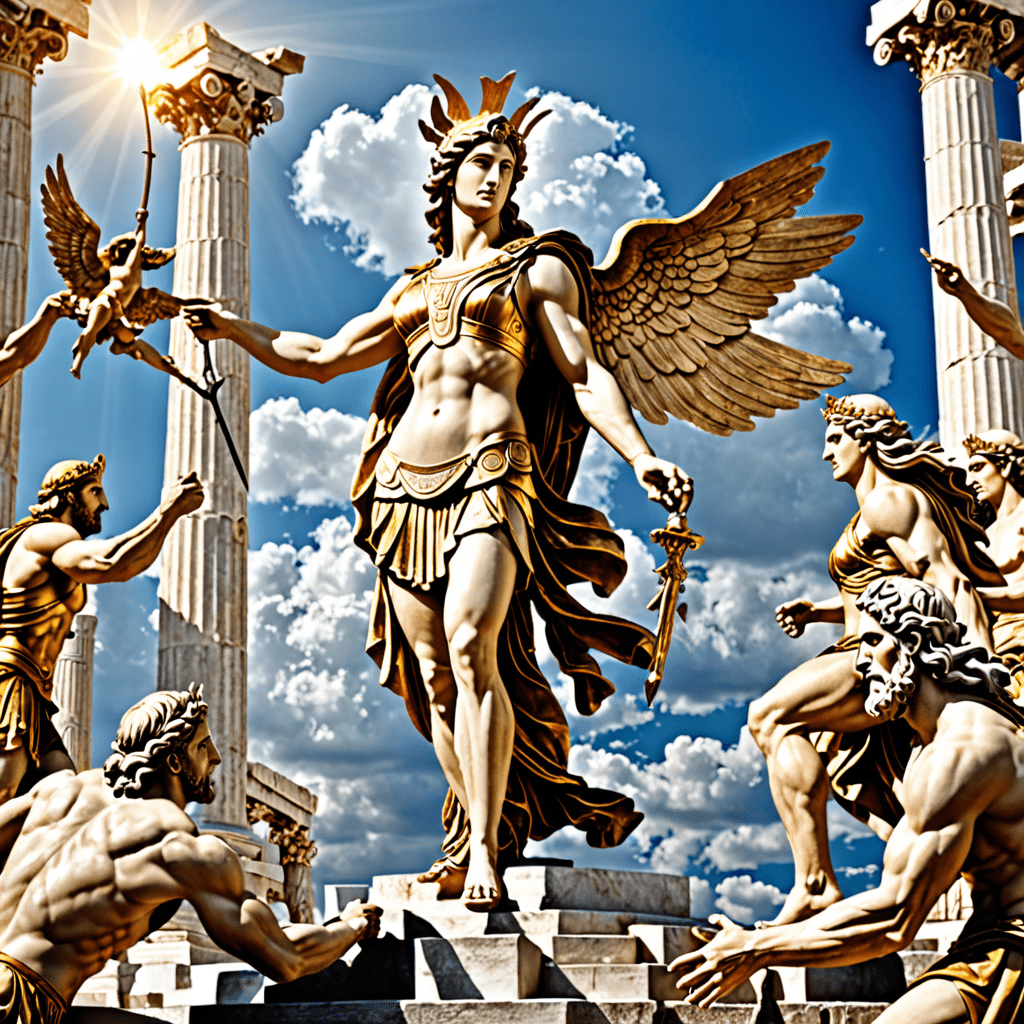Greek Mythology and the Concept of Transformation
The Fascinating Tales of Greek Mythology
Greek mythology is rich with captivating stories of deities, heroes, and legendary creatures that have intrigued people for centuries. One recurring theme within these myths is the concept of transformation, where individuals undergo significant changes that alter their identities or appearances.
Transformation in Greek Mythology: Symbolism and Meanings
In Greek mythology, transformations often symbolize profound personal growth, rebirth, or punishment. For example, the myth of Narcissus portrays a transformation into a flower as a punishment for vanity, highlighting the repercussions of excessive self-love. On the other hand, the tale of Arachne becoming a spider showcases transformation as a means of perpetuating a lesson or moral.
Notable Mythological Transformations
Among the well-known metamorphoses in Greek mythology is the story of Zeus, the king of the gods, who frequently changed his appearance to interact with mortals or express different aspects of his power. The legend of Proteus, a shape-shifting sea god, epitomizes the fluid nature of transformation and adaptability found in mythology.
The Human Experience and Transformation
Reflecting on these mythical transformations, we can draw parallels to the human experience. Just as in Greek mythology, individuals undergo personal growth, adapt to challenges, and navigate life’s twists and turns. The concept of transformation in myths resonates with the ever-evolving nature of our own journeys and the opportunities for positive change.
In conclusion, Greek mythology provides a window into the intricate relationship between transformation and storytelling. The vivid accounts of gods and heroes changing form remind us of the enduring power of transformation in shaping narratives, characters, and ultimately, our understanding of the world.
FAQ: Greek Mythology and the Concept of Transformation
What is Greek Mythology?
Greek mythology refers to the collection of myths and legends originating from ancient Greece. These stories encompass gods, goddesses, heroes, and mythical creatures, offering insights into the beliefs and values of ancient Greek society.
How does Greek Mythology depict Transformation?
Transformation is a prevalent theme in Greek mythology, with numerous tales showcasing gods and mortals changing forms. For instance, Zeus transforming into different animals to interact with humans or the story of Arachne turning into a spider as a punishment.
What are some notable examples of Transformation in Greek Mythology?
Noteworthy examples include the transformation of Daphne into a laurel tree to escape Apollo’s advances, the metamorphosis of Narcissus into a flower, and the legend of Proteus, the shape-shifting sea god.
How does Transformation contribute to the overall significance of Greek Mythology?
The concept of transformation in Greek mythology symbolizes change, adaptation, and the cyclical nature of life. It underscores the fluidity of identity and the consequences of hubris or divine intervention in altering one’s form.



